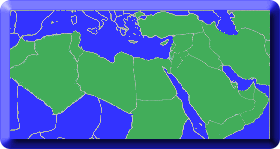
Topics in Middle Eastern and North African Economies
Document Type
Article
Publication Date
5-1-2023
Journal Title
Topics in Middle Eastern and North African Economies
Volume
25
Issue
1
Publisher
Middle East Economic Association and Loyola University Chicago
Abstract
Surviving the COVID-19 crisis would not have been possible without the unprecedented support measures implemented worldwide. Monetary and fiscal policy tools had to be used aggressively and innovatively to withstand the adverse impact of the crisis in 2020. In order to effectively design policy interventions to achieve the desired targets while accounting for potential trade-offs, an understanding of the interaction between monetary and fiscal policies becomes a prerequisite. The changing global and local economic conditions call for rigorous and continuous research on the topic to guide policy makers in navigating through the critical times ahead of the Egyptian economy and the whole world. Accordingly, the main objective of this paper is to study the interaction between monetary and fiscal policy and how effective they are in achieving economic stability in Egypt, i.e., maintaining price levels and GDP growth rate. The proposed paper employs a unified framework for modelling and exploring monetary and fiscal policy interaction and their expected transmission mechanisms in Egypt. The analysis also examines the effect of monetary and fiscal policy mix on Egypt macroeconomic stability via quantifying the impact of policy shocks on output and inflation. Analysis is conducted using Bayesian Vector Autoregression (BVAR) model covering a period of 16 years from 2005/2006 to 2021/2022 using quarterly data of five variables. As for the interaction between the two policies, results show that monetary and fiscal policies act as complements in response to a monetary policy shock. However, a fiscal policy shock doesn’t significantly impact monetary policy or non-policy variables.
ISSN
2334-282X
Recommended Citation
Karara, Mouchera; Fayed, Mona; and Aly, Heidi, "Interaction between Monetary and Fiscal Policies: Evidence from Egypt". Topics in Middle Eastern and North African Economies, electronic journal, 25, 1, Middle East Economic Association and Loyola University Chicago, 2023, http://www.luc.edu/orgs/meea/
Creative Commons License

This work is licensed under a Creative Commons Attribution-Noncommercial-No Derivative Works 3.0 License.
Copyright Statement
© The Author(s), 2023



Comments
Presentation of the articles in the Topics in Middle Eastern and North African Economies was made possible by a limited license granted to Loyola University Chicago and Middle East Economics Association from the authors who have retained all copyrights in the articles.